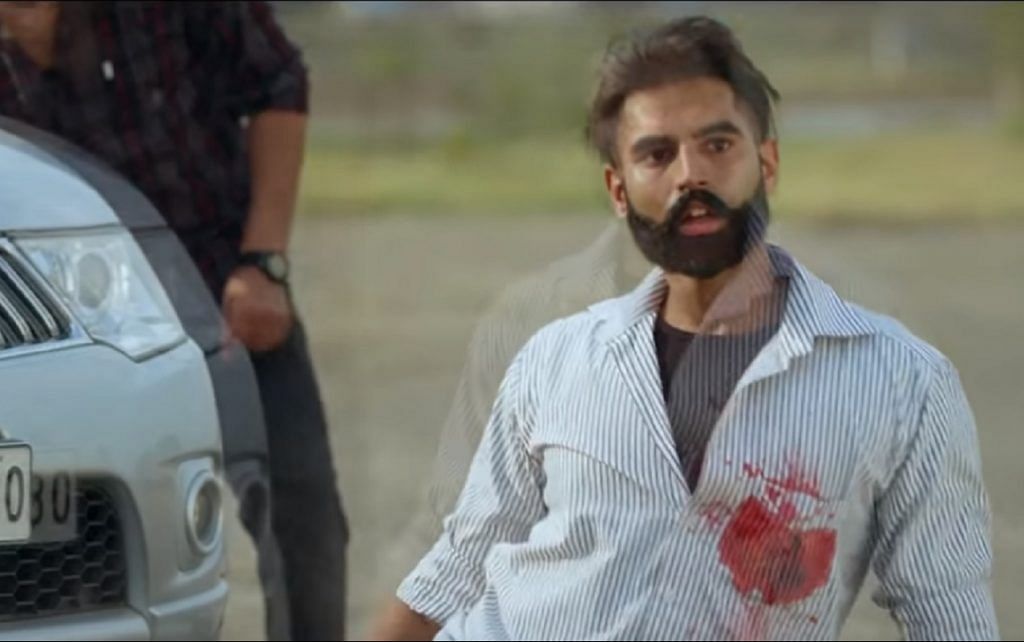The shooting of Parmish Verma is a rude wake up call to all other Punjabi singers who promote violence in their music.
The shocking news of the shooting of Punjabi singer Parmish Verma in Mohali comes with a sobering realisation about the gun culture and casual machismo that pervades the Punjabi music industry.
Sadly, this is what Punjabi singers, including Verma, have been promoting all these years.
But where is the outcry against guns in India like last month’s #NeverAgain campaign in the United States? In the Punjabi music universe, it is ‘cool’ to own a gun and fire at your enemies or your girlfriend’s former partners. And if you don’t have either, then you just shoot in the air.
Take a look at famous singer Dilpreet Dhillon’s song ‘Gunday No. 1’, where he croons “mere vicho bole billo batti bor da (I speak the language of 0.32 bore gun)”. At the end of this video, in an emotional climax, the hero dies because someone shoots him. His girlfriend then picks up two guns and shoots his enemies. This song came to be hugely popular among Punjabi youth.
A recent casual conversation with friends in my hometown Jalandhar served as a window to how deep this spirit runs: An acquaintance had been jailed, and my friends were saying he had become “quite famous and respected” since he came out on bail. They said with pride that this kind of “heroism” is in the “blood of Jatts” – an upper caste, upper class community in Punjab seen as the dominant cultural influencers.
Singer Diljit Dosanjh, too, has contributed a lot through his songs to this gun-is-cool culture and alcoholism in Punjab. The youth just lap it all up. A popular Diljit-Honey Singh song features him (Diljit) holding two guns and singing of brazen ‘bro-chismo’ – “Mittran noon shaunk goliyaan chalaun da (Buddies love firing shots)”. And then Yo Yo Honey Singh shouts, “Yes, reload it”. Diljit’s list of songs promoting alcohol is long. His famous song “Jatt fire karda (Jatt fires)” features him with the ferocious pitbulls. He says, “Jithe hundi hai pabandi hathiyaar di ni othe Jatt fire karda (Wherever shooting is prohibited, the Jatt will shoot)”.
The ‘badass Jatt’ trope in the songs is culturally overwhelming. I recall a 10-year-old kid in my hometown would brag that he was a Jatt (though he was a Brahmin) and say he would shoot his enemy down one day because “that’s what Jatts do”. If you condemn it, you are not cool. Kids won’t hang out with you, and will consider you a coward.
The story of songs promoting violence doesn’t end here. A song about getting Chandigarh sealed for a Jatt man’s appearance at the high court became popular sometime ago. Zora Randhawa’s song “High court peshi Jatt di, seal ho gaya Chandigarh sara (Jatt’s appearance in the high court makes the authorities seal Chandigarh)”. The singer displays pride at being able to scare away police, judges, and lawyers because of his influence.
https://www.youtube.com/watch?v=lKN2vSq2rrk&feature=youtu.be
Ironically, even Parmish Verma’s songs have dealt with gun violence.
Take a look at his song “Meri Mout (My Death)”, which features him as a college bully (he has appeared as a bully in other songs too). The lyrics say, “End maare ne bandook te mashook te, putt kinnian maawaan de sivea ch phoonk te (Giving up guns and girlfriends after putting several sons of some mothers to graves)”. In the end, he and his friends are shot by their enemies. That song had over 8 million views on YouTube and comments full of praise.
https://www.youtube.com/watch?v=Q6ZzQIkW_JY
Verma’s shooting prompted Speed Records to tweet that the incident was also an attack at the Punjabi entertainment industry.
The attack on Parmish Verma is not just an attack on an individual but an attack on the entire Punjabi entertainment industry. Speed Records stands with @ParmishVerma . So should you #StandForParmishVerma pic.twitter.com/20gFfgaXAJ
— Speed Records (@Speed_Records) April 14, 2018
If it has hurt the industry too much, then I hope all the recording studios in Punjab (or in Canada, Australia, UK and elsewhere) will work towards ending the promotion of violence in their songs.
